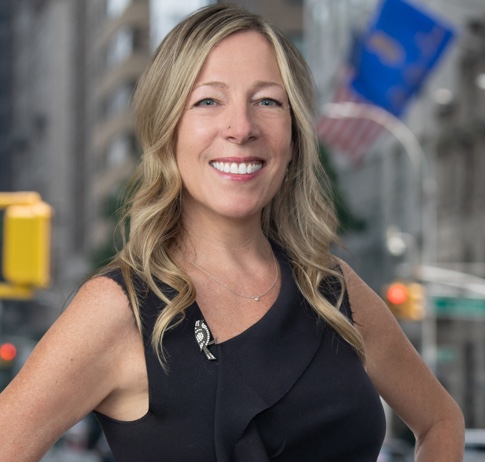This article, authored by Withers’ Amber Melville-Brown, was originally published in The Times on April 16, 2020.
New York, New York. So great they named it twice as the saying goes, but there is a twist: the city doubles as the centre of the American legal profession and, now, as the centre of the country’s coronavirus crisis.
The state as a whole has 177,000 practising attorneys. It also has more cases of Covid-19 than anywhere else: more than 200,000.
On March 20 Andrew Cuomo, a former lawyer and the state governor, issued his “New York on pause” executive order, closing the offices of all non-essential businesses.
Whether through hubris or self-awareness, lawyers may consider themselves to be essential workers. While workers in healthcare, at convenience stores, funeral homes and, happily, liquor stores all find themselves on the governor’s essential list, lawyers do not.
The rule of law is essential, however, in any modern, democratic society — so how is New York functioning while its lawyers are on lockdown?
The courts are the heart of the legal system, and they are still beating. Dean Nicyper, a partner at Withers Bergman in Manhattan, says that they have experienced “a major retrenchment process, to make sure court personnel are safe, socially distanced and working from home where possible”.
After shutting down non-essential services and access, they are “adjusting to this new existence and starting to innovate”, he says.
While the doors to the state’s courthouses are closed, the shift to a virtual court system across the jurisdiction’s 62 counties has, in the words of Janet DiFiore, the chief judge, “made it possible for participants in essential and emergency proceedings to appear remotely via Skype, dramatically reducing the number of people in our courthouses to protect public health and safety”.
On the criminal side, jury trials were the first to be postponed and, as Laurie Kuslansky, a jury consultant, says: “While many were reluctant to close or delay trials, once the trend began, it became an avalanche.”
If the courts are the heart of the legal system, its attorneys are its lifeblood. Studies and kitchen tables are now their territory; suits and ties make way for chinos and polo shirts; the camaraderie of the office replaced by the company of spouses and children.
While losing the dubious delight of the delayed subway train may be a bonus, remote working has disadvantages. Separation anxiety — from paper files, associates and secretaries — combine with technology glitches.
Morghan Richardson, a partner at Davidoff Hutcher & Citron, says that “up to now, there has been a divide between tech-savvy attorneys and those stuck on how they have always done it.
“But technology is now showing the valuable connections that we can bring to the table by evolving.”
New York’s lawyers are seeing the death rate in their city and state rise significantly, the prospect of a vastly diminished economy loom and job insecurity increase. It is a stressful time for anyone in New York — stressful too for attorneys seeking to alleviate problems for their clients during the crisis.
Bret Parker, executive director of the New York City Bar Association, says that “in a time of great job insecurity for lawyers, we want them to know we are a constant, second home for them, a port in a storm, where they can continue to engage, learn, collaborate and network”.
The New York State Bar Association is hosting virtual events “to discuss and share concerns, while connecting and supporting others in the profession”. The head of the state bar association’s women in law section, Terri Mazur, reminds the profession that “the practice of law should not be business as usual right now”. During the pandemic “we are challenged with taking the skills we use in our normal practice and having to pivot and apply them to remote work”, she says.
New York may be locked down, but the rule of law continues. Police in a patrol car gliding up an eerily empty avenue spotted a youth picking his nose on the sidewalk. “Now go wash your hands,” bellowed one of the officers over the car tannoy.
Nose picking may not be a criminal offence, but many will find themselves during this pandemic in need of legal help.
“For many of us, it’s a bit of déjà vu with 9/11 as we are seeing a crisis bring out the best in New York lawyers,” Mr Parker says.
“As they lined up around the block outside our landmark building in 2001, hundreds of lawyers are starting to line up virtually to help with the legal first response to the coronavirus.”
That response includes the city bar association’s justice centre offering remote legal assistance to frontline health workers, launching a pro bono project to help small businesses to gain access to the federal government’s stimulus package and creating online resources for the public.
“All this while continuing to operate the largest legal hotline in the state for low-income New Yorkers,” Mr Parker says.
The bar association has announced a partnership with the courts to launch a network of pro bono lawyers to advise on virus-related legal emergencies.
Henry Greenberg, the state bar association’s president, says that the crisis will trigger “unprecedented legal challenges that will transform the profession and society as we know it”. Ms DiFiore is confident that “members of New York’s talented and big-hearted legal community are up to the task”.
Mr Cuomo concluded a recent daily address by saying: “Sometimes it’s not about you, right; it’s not about you, it’s about we, and that’s where we are.”
New York’s attorneys, like the rest of its residents, will continue to battle, as Mr Cuomo puts it, “New York tough”.
Amber Melville-Brown is a partner and global head of media and reputation at Withers, an international firm based in London; she is admitted in England and Wales, and in New York.

